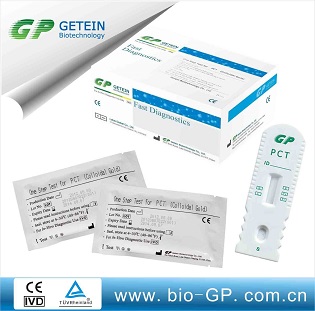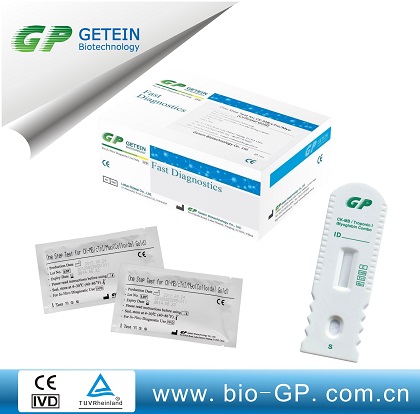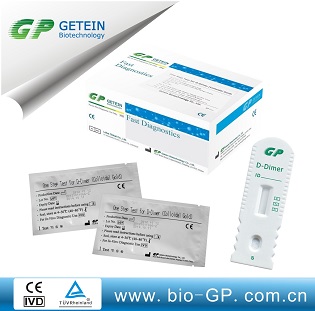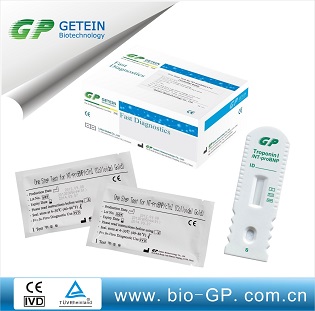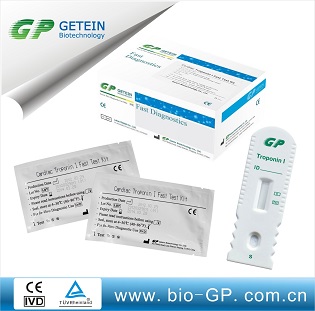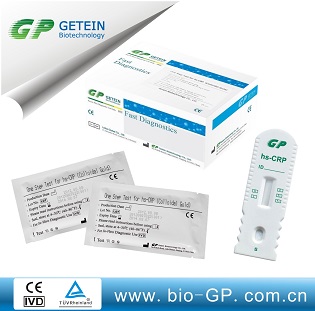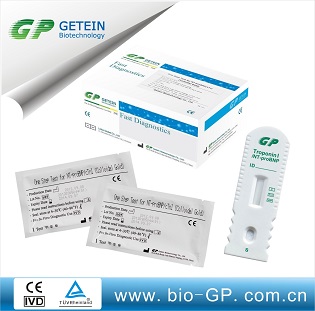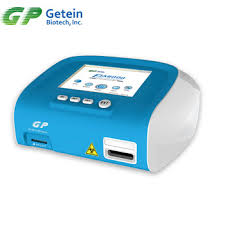Product information
Procalcitonin (PCT) is a pro-hormone of calcitonin, consisting of 116 amino acids, which is secreted by neuroendocrine cells (C cells) of the thyroid, lungs, and intestines.
Healthy human blood contains only low amounts of procalcitonin. Procalcitonin levels are often elevated in response to infections, especially severe infections and septic shock. In serum, procalcitonin has a half-life of 19 to 24 hours. It is important to note that elevated plasma procalcitonin levels in infections are not accompanied by parallel elevations of calcitonin or calcium.
Point
PCT is a parameter used to diagnose and monitor inflammatory diseases caused by bacterial infections, usually indicated to:
- Differential diagnosis of infectious and non-infectious inflammation
- Monitor patients at risk of infection (patients after surgery, after organ transplant, immunosuppressive process, multiple trauma), patients in intensive care, to detect systemic infection or detect complications of infection.
- Assess the prognosis and course of severe inflammatory diseases such as peritonitis, sepsis, systemic inflammatory response syndrome (SIRS) and multiple dysfunction syndrome multiple organ dysfunction syndrome (MODS).
- Indications for the use of antibiotics in the treatment of respiratory infections or pneumonia.
Clinical significance:
The normal value of human plasma PCT is < 0.046 ng/mL (or < 0.046 μg/L). The clinically significant cut-off value is:
- <0.5 ng/mL: low risk for severe infection and/or septic shock
- > 2.0 ng/mL: high risk for severe infection and/or septic shock
PCT is a specific parameter of severe bacterial inflammation, fungal infections and is a true indicator of inflammatory activity associated with infection and multiple organ failure. In non-immunosuppressed patients, strong enough bacterial stimulation causes an increase in PCT production. In bacterial infections, PCT levels rise early and become detectable after 2 hours, whereas CRP levels begin to rise after 6 hours. Cytokines (such as IL-6, IL-10 or TNF-α) can be elevated earlier, but have a shorter half-life, and more complex quantification techniques are less commonly used. Therefore, the evolution of PCT concentration can be used as a parameter to differentiate acute infection as well as to monitor the degree of inflammation due to infection. For this reason, PCT quantification should be performed daily and, in special cases, quantified over short intervals of 8 to 12 hours.
The clinical significance of PCT is shown in the following points:
1. Plasma PCT increased in infectious diseases
In inflammatory diseases of unknown etiology, PCT may indicate a bacterial cause. In nonbacterial inflammatory diseases, PCT levels are low relative to the severity of the clinical picture.
During the course of the disease, PCT levels may be elevated by bacterial superinfections or by bacterial infection [1, 4]. Increase in plasma PCT level in various diseases:
- Chronic inflammation, autoimmune disorders, viral infections (eg, HBV infection), mild or local infections: PCT < 0.5 ng/mL.
- Pneumonia: PCT 0.5-10 ng/mL
- Systemic inflammatory response syndrome (SIRS), multiple trauma, burns: 0.5-2 ng/mL
- Severe infections, sepsis, multi-organ failure: > 2 (usually 10-100 ng/mL) [1].
2. Increased PCT in patients at risk of infection
Intensive care patients at risk of infection can be monitored by PCT. Because PCT is synthesized only in bacterial or systemic infections and not by local inflammation or by trivial infections, PCT is a better diagnostic parameter for monitoring severe infections than other parameters. others such as CRP (C-reactive protein), interleukin-6, body temperature, white blood cell count and erythrocyte sedimentation rate. Induction of PCT occurs between 2 and 6 hours after infection [3, 5].
3. PCT changes according to the course and severity of the disease
In severe infectious inflammatory diseases and multiple organ failure syndromes (MODS), elevated levels of PCT reflect inflammation. The advantage of PCT over other inflammatory markers is that severe infections strongly increase PCT (with levels > 10 ng/mL), whereas mild infections or milder periods of infection cause only mild infections. moderately increased levels of plasma PCT. CRP is maximal in moderate infections. If the trigger goes away, it means that after successful treatment, PCT levels return to normal within a few days. In peritoneal infection, a decrease in PCT level during the first 3 days is a good indicator of survival with a sensitivity of 84% and a specificity of 91%. Similarly, in patients with multiple organ failure syndrome (MODS) or infection, persistent and persistent elevation of PCT levels indicates persistent inflammation and is indeed a poor prognostic indicator. In preterminal patients, PCT levels are persistently elevated [5].
4. Plasma PCT levels help guide appropriate antibiotic doses:
The recommended PCT concentrations for antibiotic use in respiratory infections or pneumonia are as follows:
- PCT < 0.10 ng/mL: No antibiotic is indicated
- PCT < 0.25 ng/mL: Do not use antibiotics. However, if you are on antibiotic treatment and your PCT falls to this level, you need to continue antibiotic treatment until the disease is cured.
- PCT > 0.25 ng/mL: Can and consider antibiotic use
- PCT > 0.50 ng/mL: Mandatory use of antibiotics [2].
PCT is indicated to:
- Differential diagnosis of infectious and non-infectious inflammation
Monitor patients at risk of infection, detect systemic infections or complications of infection.
- Assess the prognosis and course of severe inflammatory diseases such as peritonitis, bacterial infection, systemic inflammatory response syndrome (SIRS) and multi-organ failure syndrome (MODS).
- Indications for the use of antibiotics in the treatment of respiratory infections or pneumonia.
The clinical significance of PCT is:
- Plasma PCT is increased in inflammatory diseases caused by infections
- PCT is also increased in patients at risk of infection
- PCT varies according to the course and severity of the disease
Plasma PCT levels help guide appropriate antibiotic doses





